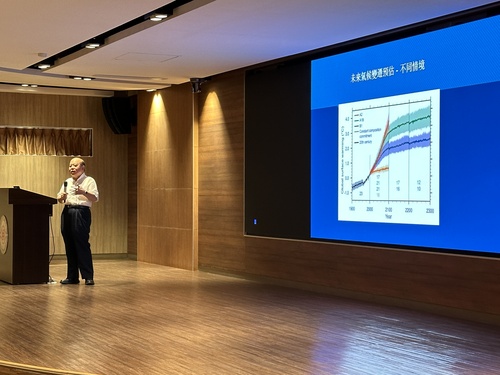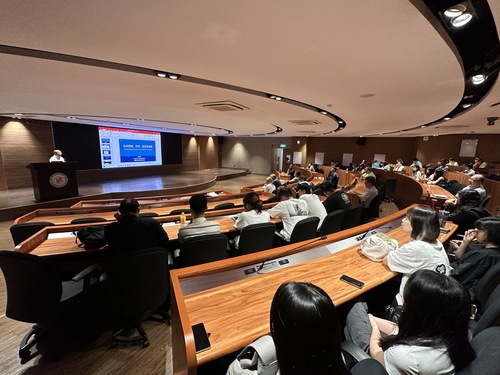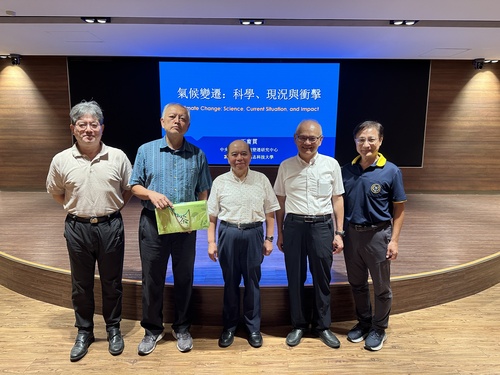Special Lecture-Academician Wang Baoguan/Climate Change-Science, Current Situation and Impact (112.10.06)



In response to global climate anomalies, renewable energy challeges, and sustainable development issues, the Smart Vehicle Research and Development Center invited Academician Wang Baoguan from Academia Sinica to deliver a special lecture at our school on October 6, 2023. Over 70 faculty and staff members attended the event, where Academician Wang, an expert in environmental climate change, inspired students and teachers to comprehend the impacts and consequences of global warming and climate change. As the world actively strives to achieve net-zero carbon emissions by 2050 and reduce carbon dioxide emissions, what should our response be? The theme of Academician Wang's lecture was "Climate Change: Science, Current Situation, and Impacts." He began by discussing weather patterns and the factors that influence climate. He addressed the changes occurring in Taiwan's climate, estimated future climate shifts, and the necessary responses to the consequences of warming. Academician Wang emphasized that Taiwan must formulate detailed strategies to achieve net-zero carbon emissions by 2050 and implement them rigorously.The challenge of how Taiwan can keep pace in this net-zero race and build a low-carbon society is one that everyone must confront colletively. In Taiwan's 2050 net-zero plan, electric vehicles play a crucial role. The goal is to achieve a 35% penetration rate of electric buses in urban areas by 2025, fully electrify public service vehicles and buses by 2030, and ban the sale of fuel-powered vehicles starting in 2040. This indicates that the trend toward vehicle electrification is irreversible. The Smart Vehicle Center aims to independently develop electric commercial trucks, establishing a comprehensive and advanced research and development capacity, as well a a testing environment for electric vehicles, vehicle batteries, and systems. Through these efforts, we hope to drive the electric vehicle industry and provide electric commercial vehicles to meet the goal of net-zero emissions by 2050.